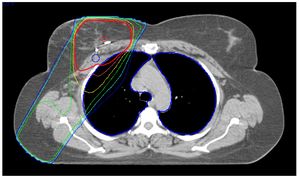Proposed council tax increases across the UK are raising significant concerns as local governments grapple with severe financial pressures. Staffordshire, Gwynedd, and Hampshire counties are on the brink of raising their council taxes, each facing unique challenges fueled by decades of insufficient funding and rampant inflation.
Plans are underway for Staffordshire to increase council tax as part of funding for police services. Ben Adams, the Staffordshire Commissioner, disclosed intentions to raise council tax for Band D properties by approximately £14 per year. The increase is linked to the precept which funds Staffordshire Police services and will be presented to the county's Police, Fire and Crime Panel on February 10. Adams elaborated, "It is my duty to secure effective and efficient police and fire and rescue services..." emphasizing the need to meet community demand amid tightening financial constraints.
This proposed increase, which amounts to about 27 pence per week for residents, responds to central government grants failing to cover rising costs including wages, National Insurance, and inflation. Adams expressed his discomfort, stating, "Regrettably, next year, central government grants will not cover increases..." He cautioned against not taking these measures today, foreseeing greater service cuts and possibly larger tax hikes down the line.
Meanwhile, residents of Gwynedd face even sharper increases, with the council proposing to raise council tax by 8.23%. The authority's financial position remains precarious; it has slashed nearly £74 million from its budget over the past decade due to poor financial settlements from the Welsh Government. On March 6, Gwynedd's full council will vote on the proposals, which include the potential consolidation of services or supply chain adjustments to generate additional income. Councillor Huw Wyn Jones, noted, "None of us have chosen to enter local politics to cut services and raise more taxes..." admitting there have been no alternatives due to inadequate funding, primarily from the government.
The situation has left Gwynedd's officials with no real option but to initiate the tax increase to support school funding and services for vulnerable individuals. Councillor Nia Jeffreys voiced frustrations about the chronic funding issues. "We have been warning the Government for a long time... and we call on them to fund local councils fairly," she stated, reinforcing the council's need for sufficient resources to meet public demand.
Hampshire County Council adds to the woes with proposals for significant tax hikes up to 14.99%, pending government approval. Chief Financial Officer Rob Carr submitted a request for exceptional financial support to permit this increase, which is three times the usual cap of 5%. If granted, this leap would help close the county's glaring budget deficit forecasted to hit £182 million for the next fiscal year and balloon to £266 million by 2026/27.
"This confirms my long-held view..." Carr affirmed, detailing the significant task at hand for the council as it confronts limitations on service delivery due to inadequate recurring savings. Council officials recognize the unsustainable nature of continuously drawing from reserves, with Carr stressing, "Drawing from reserves does not fix the underlying problem."
He remarked on the precarious tipping point reached whereby maintaining legal minimum services becomes impossible without drastic funding enhancements.
Hampshire's council is contemplating two paths: one, if allowed to raise taxes, at 14.99%; or, failing government approval, setting the rate back to 15%, which would necessitate a community referendum. Initiatives such as these, though perhaps inevitable, come with heavy financial tolls—estimated at over £2 million for the referendum alone—if the vote fails, leading to added re-billing costs.
The repercussions of these increases extend deep within communities, from household budgets to the very infrastructure of local services. Each of these local councils struggles not just against their own budgetary crises but also against increasing social demands. With rates expected to rise markedly, residents are anxious about future financial instability as they seek to make ends meet.
Adams, from Staffordshire, echoed the communal sentiment of unease, recognizing the pressures these plans place directly on household budgets. For many, the prospect of yet another tax increase raises valid concerns about affordability and support for those currently struggling.
Overall, the proposed council tax hikes across Staffordshire, Gwynedd, and Hampshire highlight the broader issue of financing local services in the face of continually rising costs and diminishing state support. The coming weeks will be pivotal as councils finalize their budgets amid growing fears about the long-term sustainability of local governance and community services. Ensuring safety, education, and adequate support for vulnerable populations are just glimpses of what hangs precariously as councils navigate these financial waters.



